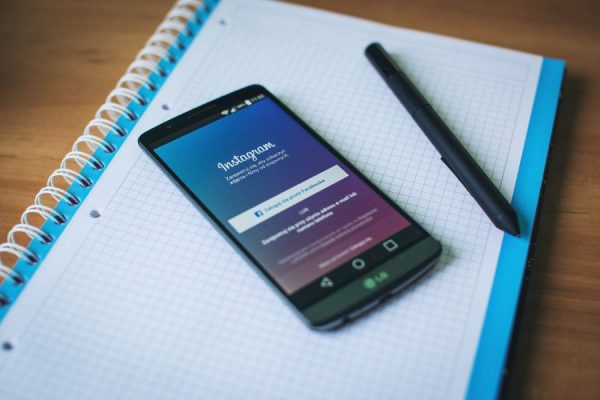Yesterday, I went to get ice cream. One of my favorite flavors: coffee Oreo. But when I got my order, my first thought was not to dig into the frozen goodness, but to take a picture and share it with the small portion of the world who followed me on Instagram.
Why?
Do we really feel the need to prove that we’re living our lives with a snapshot of every little movement? And who are we proving it to? People we haven’t seen since high school who will look with glazed-over eyes for approximately half a second, and then tap right along to the next image?
Being on Instagram is like being in that anti-depressant commercial where the woman is struggling on the inside, but carries around a fake smiley face to convince everyone she’s fine.
In the nine years Instagram has existed, we’ve become familiar with its structure and consequences of too much use. As with any form of social media, we know that people only post what they want the world to see. But add in Instagram’s visual platform, and filters distort our perceptions of reality, and comparing our daily lives to everyone else’s highlights (never mind how many likes on their pictures vs. ours) only results in stress and feelings of inferiority.
Perhaps that was why, in 2017, a study declared Instagram the worst app for young people’s mental health. Higher use of the app correlated with rates of depression and anxiety.
I’m guilty of mindlessly scrolling through posts of acquaintances’ nights out or friends’ vacations while I’m on the couch myself. When I’m procrastinating, I’ll swipe out my phone and stare numbly at photos. And then, cue the crushing doubt. Why is my life not like that? What could I be doing better?
The truth is, their lives aren’t even like that.
This we’ve accepted.
Have you heard of the green glass door riddle? I won’t spoil it if you haven’t, but the game isn’t as fun once you’ve figured out the rule.
If we can see through the facade that Instagram lets each of us create, why do we still fall victim to its comparison trap?
I don’t have the answer to that, but I do know that thinking others were constantly doing amazing things was seriously messing with my own happiness.
I thought about deleting the app for a period of time. I did that for over a month last year for Lent, and didn’t even feel like redownloading it. But I would miss the inspirational content I have seen people share on the platform, and it’s one main way I keep up with the musicians and artists I do follow. Plus, it’s challenged me to take better photos. And like it or not, social media isn’t going anywhere, so rather than ban it, we might as well try to use it in positive, healthy ways.
For me, at the moment, a healthy compromise means limiting my use of the app and viewing it as the tool that it is, by no means a validation of my life choices.


